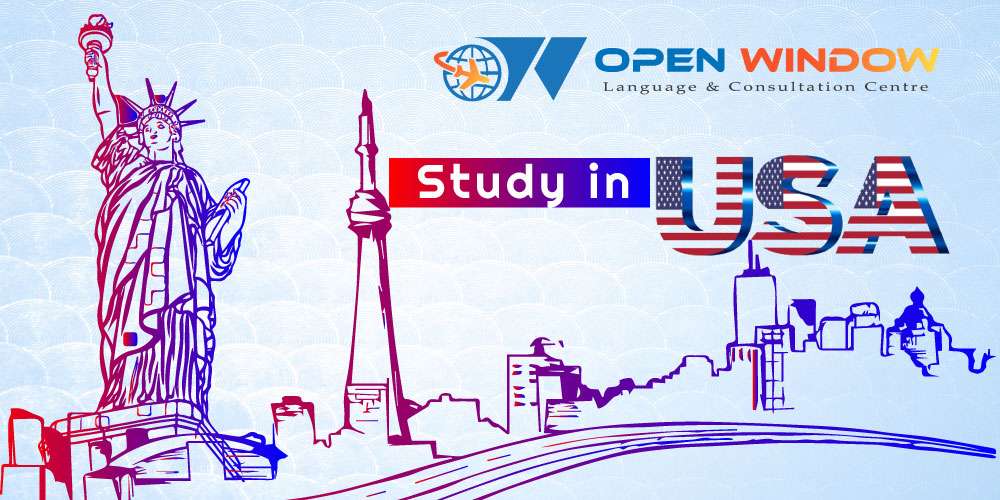Study in Switzerland
Study in Switzerland – Switzerland is a country known for its world-renowned universities and high-quality education system. It is an attractive destination for international students looking to study abroad, offering a diverse range of programs in various fields, including finance, technology, and hospitality.
The Swiss education system is characterized by its emphasis on practical learning and research, enabling students to apply their knowledge in real-world settings. The country also boasts a strong economy and a high standard of living, making it an appealing destination for both study and work opportunities.
Furthermore, international students in Switzerland are allowed to work part-time while studying, providing them with an opportunity to gain valuable work experience and earn some extra income. Students can work up to 15 hours per week during the semester and full-time during breaks.
Overall, studying in Switzerland offers a unique blend of academic excellence, practical learning, and cultural experiences, making it a highly desirable destination for international students.
Why Study in Switzerland?

1. Tuition fees are affordable
Given the fact that Switzerland has one of the most advanced free market economies, it’s quite surprising that tuition fees are relatively affordable. Both EU/EEA and non-EU/EEA students usually pay between 400 and 3,700 EUR per academic year.
Not spending a lot on your education is a great advantage because living costs in Switzerland are well above the European average.
2. Swiss universities are among the world’s best
Institutions like Times Higher Education, TopUniversities, and US News release their global university rankings every year. And every year Swiss universities earn their places among the best educational institutions out there.
Swiss universities stand out by providing some of the best study programmes in Business, Tourism and Hospitality, Culinary Arts, and Engineering.
3. Explore multilingualism and cultural diversity
If you dream of becoming a polyglot one day and knowing a little bit about as many cultures as possible, Switzerland can help you fulfil this dream.
There are 4 official languages — German, French, Italian, and Romansh — and the Swiss society and people are very welcoming towards internationals from all over the world.
4. High salaries and low unemployment rates
High livings standards go hand in hand with high salaries — and this is so true in Switzerland. The country has a healthy economy, a stable society, and one of the best healthcare systems out there. Unemployment rates are also very low.
All in all, Switzerland is a great place to settle, especially after your graduation. You’ll already be familiar with the language(s), lifestyle, and locals, which will make it so much easier to find your place and build a life you’re proud of.
5. Travel and enjoy nature’s beauty
Living in Switzerland isn’t only about hard study, work, and a lot of money. It’s also about travel, nature, and enjoying yourself. And there are certainly enough places where you can do that.
These are only a few of the popular destinations that attract tourists from all over the world, although, we must confess, the iconic mountains and peaks have already won our hearts: the Matterhorn, Interlaken, Lucerne, Lake Geneva, Chillon Castle, Lake Lugano and Ticino, the Rhine Falls, the Swiss National Park, etc.
How to Apply in Switzerland
If you’ve decided to study a Master’s degree at a university in Switzerland, you will have to gather the right documents to prove that you fit the university requirements. Provide complete personal information, previous qualifications, financial information, and a personal statement.
What documents do I need to provide to apply in Switzerland?
You’ll be asked to present supporting documents including:
- signed application form;
- two passport-size photos;
- copy of your identity document;
- academic transcript(s) from each university you attended;
- high school or Bachelor’s diploma;
- language proficiency certificates (German/French/English);
- resume;
- receipt of the application fee;
- motivation letter.
If a document/statement is not written in English/French/ German a translation may be required, from a recognised translator – confirmed by an official stamp. In some cases, universities may ask for additional documents after you have submitted your application. To avoid delays or missed deadlines send your evidence with plenty of time in advance.
Prove your language skills

To show that you have the right English skills, you’ll have to also present an IELTS or TOEFL language certificate. If you don’t meet the minimum language scores you will have to improve them by taking an English preparation course.
If you want to study in French or German, you’ll need one of the following certificates:
- German: DSH, TestDaF, OSD, Telc and others
- French: DELF or DALF
Application deadlines for Switzerland
The deadlines for applying to a Master’s in Switzerland are usually during autumn (November), or in spring (April). Many universities have rolling applications, which means you can apply whenever you are ready.
Living in Switzerland

Let’s take a closer look at tuition and living expenses in Switzerland:
Tuition fees in Switzerland
In Switzerland, both EU/EEA and non-EU/EEA students pay the same tuition fees at most public universities (with a few exceptions listed further below). For Bachelor’s and Master’s degrees, students pay between 400–3,700 EUR per year.
Private universities are much more expensive. Their tuition can go over 40,000 EUR per academic year. But not all study programmes cost that much; it depends on the discipline and the university.
Students who come to Switzerland on an exchange programme don’t pay any tuition fee. At universities from Fribourg, Lucerne, Neuchatel, St. Gallen, Zurich, and Lugano, you can encounter 2 different situations:
- only non-EU/EEA students pay higher tuition
- both EU/EEA and non-EU/EEA students pay higher tuition compared to local (Swiss) students
Accommodation, food and other expenses
Switzerland is one of the most expensive countries in Europe, but every penny is worth it, thanks to the high standard of living and the high average salaries. To live there as a student you need to budget around 1,300–1,700 EUR per month.
Here’s a breakdown of the average living costs in Switzerland:
- Rent: 400–800 EUR per month
- Utilities: 220–250 EUR per month
- Monthly transport pass: 74 EUR
- 1 litre of milk: 1.45 EUR
- Loaf of bread: 2.60 EUR
- Meal at an inexpensive restaurant: 23 EUR
Work While Study in Switzerland

Switzerland is known for its high standard of living, quality education, and a strong economy. As a result, many international students choose to study in Switzerland. Fortunately, it is possible to work while studying in Switzerland, provided certain conditions are met.
International students are allowed to work for up to 15 hours per week during the academic term and full-time during vacations, such as winter or summer breaks. However, it is important to note that finding work in Switzerland can be competitive, as the Swiss job market is highly skilled and specialized. Students are also required to obtain a work permit before starting any employment, and employers must provide appropriate documentation.
It is worth noting that working in Switzerland can help international students gain valuable work experience, improve their language skills, and supplement their income while studying. However, it is important to balance work and study to ensure that academic performance is not impacted.
Overall, studying in Switzerland can offer a unique and enriching experience for international students, and the opportunity to work while studying can be an added benefit. However, it is essential to understand the regulations and requirements for working in Switzerland to ensure a successful and productive academic and work experience.
Switzerland at a Glance
| Course Duration | Intake | Application Fee | Requirements |
| 1/2 Year (Masters) 1 Year (PG Diploma) | January, April, September | 100 to 400 (EUR) | IELTS compulsory for visa, Academic-Above 50% |
| Language Proficiency | Tution Fee (Yearly) | Living Cost (Yearly) | Visa Application |
| IELTS-6+, TOEFL-70+ | 2000 to 30000 (EUR) | 15600 to 20400 (EUR) | 88 (EUR) |
| Air Ticket | Processing Time | Part Time Work | Post Study Work Permit |
| 110000 to 170000 (BDT) | 3-6 Months | 6 Months Paid Internship | None |
Our Affiliated University List
| Sr No | University Name | City |
| 1 | GLION Institute of Higher Education, | Montreux |
| 2 | EU Business School, | Montreux and Geneva |
| 3 | Business & Hotel Management School (BHMS), | Lucerne |
| 4 | Swiss Hotel Management School (SHMS), | Montreux and Leysin |
| 5 | Geneva Business School, | Geneva |
| 6 | International Management Institute (IMI), | Kastanienbaum, Lucerne |
| 7 | Cesar Ritz, | Montreux |
| 8 | International Hotel & Tourism Training Institute (IHTTI), | Montreux |
| 9 | International University in Geneva, | Geneva |
| 10 | Hotel & Tourism Management Institute Switzerland (HTMi), | Lucerne |
| 11 | Les Roches, | Montana |
| 12 | Culinary Arts Academy (CAA), | Le Bouveret and Lucerne |
| 13 | Hotel Institute Montreux (HIM), | Montreux |
| 14 | American University in Switzerland, | La Tour-de-Peilz |



